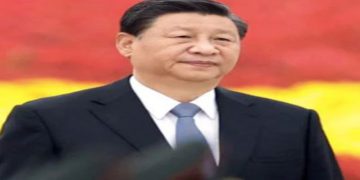EDITORIAL
Money, black or white, tastes sweeter than honey, but there is a remote possibility that it could turn bitter for those who have stashed it in foreign banks. For one, there has been selective albeit minimal release of names of secret account holders by the Swiss authorities. For another, the laws in relation to black money have been tightened here in recent times. While there is some hope for an early breakthrough in respect of ploughing back the black money stashed abroad, such optimism is also tempered by the fact this issue is going round and round for very many years and the hiccups are one too many.
The announcement by the Swiss Federal Tax Administration (SFTA) two days ago of the names of two Delhi-based business persons might just be a start of the unfolding of the long-held secrecy relating to Swiss and similar secret bank accounts being maintained by Indian nationals. This was followed by the release of three other names of Mumbai-based business persons Tuesday, strengthening hopes of more such revelations.
SFTA has made the names and details of accounts public through the nation’s official gazette, responding to requests from the Indian authorities probing money laundering cases. All the five have been granted 30 days’ time to appeal before the Federal Administrative Court if they do not want the details of their accounts to be shared with the Indian agencies. In other words, legal complications are still a possibility even in the case of the names that have been released. How the appeals will be decided is being keenly watched, as future revelations by the Swiss authorities hinges on the verdicts in these respects. To that extent, the release of a few names by the Swiss authorities could also be seen as nothing more than a kite-flying or an attempt to test the ground.
It is worth remembering that Swiss ambassador to India Linus Von Castelmur had stated last year that his country would continue to withhold all information about Indians holding bank accounts there. His country might entertain some queries from India, that too if New Delhi made it absolutely clear that such information was required investigations here, he had said.
The Swiss government, somewhat understandably, had been fighting shy for many years as far as disclosure of such information was concerned. Its natural instinct is to protect its own banking institutions that thrive on secrecy over deposits of unaccounted wealth from nations like India where corruption is high but banking systems are relatively strong.
In fact, “banking secrecy” has been continuing in Switzerland for the last 500 years. This long tradition took on the shape of “codes” in 1934 through the promulgation of a new law. This long-held “banking secrecy” made Switzerland the chosen country for many to stash their ill-gotten wealth. Kings, queens, dictators, despots, dons and mobsters, kingpins of drug cartels, arms dealers, spies, business tycoons and politicians are believed keeping huge stocks money in Switzerland for decades, and safely too. It is rarely ever that the tradition of secrecy has been broken. The release of a few names by itself is a step forward.
India and Switzerland signed a pact in 2010 amending the double taxation avoidance agreement that allowed India to have access to the database of its nationals who have opened accounts there. After five long years, and past administrative and other hurdles, this is for the first time that the names of a few Indians have been made public.
Notably, it was in December, 2014 that the Supreme Court constituted a special investigation team (SIT) to speed up the black money investigations. According to the Swiss National Bank (SNB), the total deposits of Indian account holders there would be around Rs. 14,000crore as of last year. The Union Government’s move to send in investigation teams to Switzerland to push the case further is a new development. Hope is that there will eventually be more meaningful action from both sides, though Prime Minister Narendra Damodardass Modi’s election promise of distributing lakhs of such ploughed back money to each citizen of this country will still remain a far cry.






































